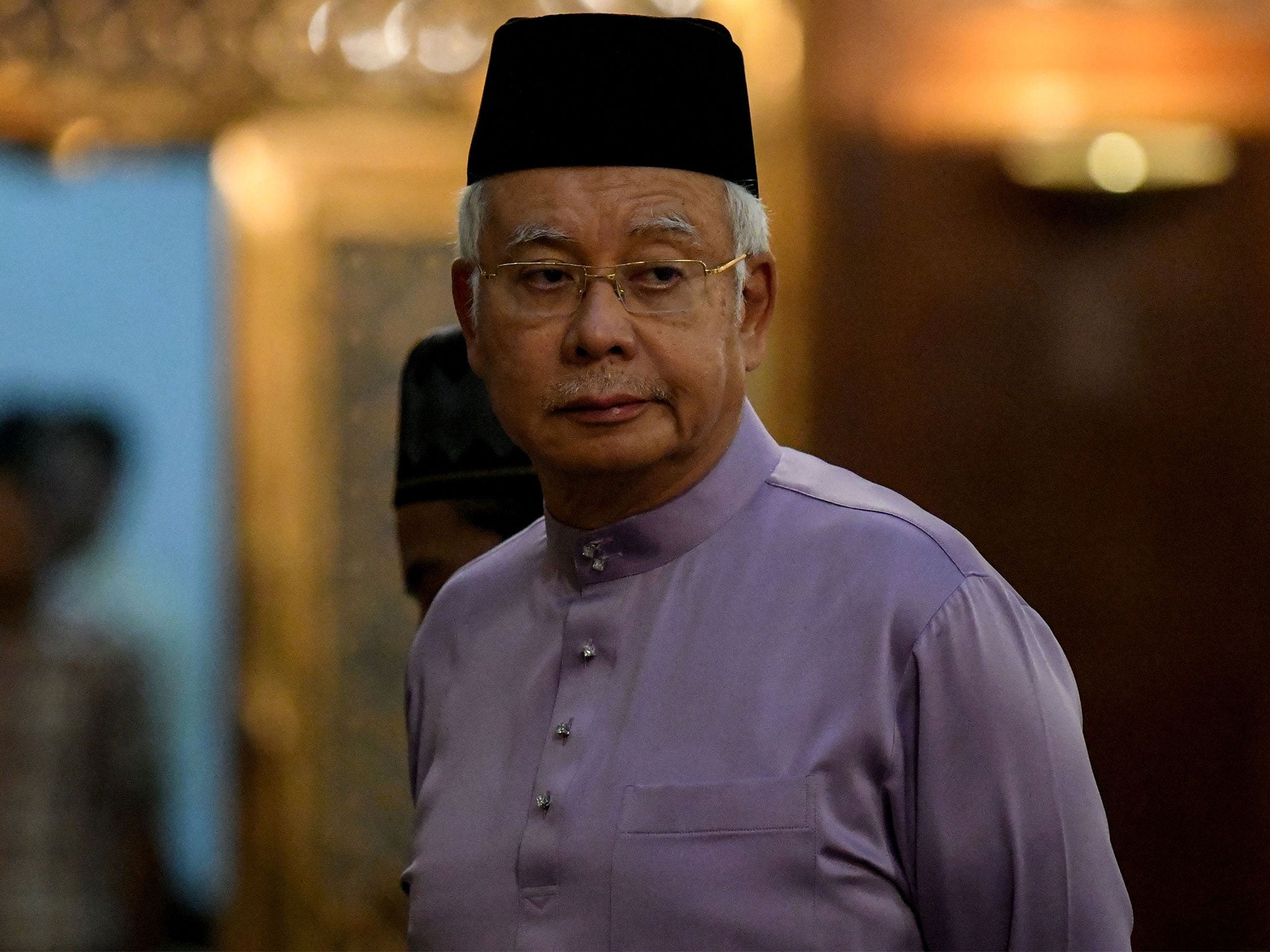Former Malaysian prime minister Najib Razak arrested in $4.5bn embezzlement probe
Alleged crime described as biggest corruption scandal in country's history

The former prime minister of Malaysia, Najib Razak, has been arrested over alleged involvement in the embezzlement of $4.5bn (£3.4bn) worth of government funds, described as the biggest corruption scandal in Malaysian history.
Mr Najib, who was defeated in the country’s election in May, was arrested at his Kuala Lumpur home and taken in unmarked cars to Malaysia’s anti-corruption agency headquarters where he was held overnight. He will be charged on Wednesday morning.
The former leader has been plagued by corruption allegations since 2015, and had consistently been cleared by Malaysian authorities while in power. But as soon as the newly elected government came to power, led by 92-year-old Mahathir Mohamad, the investigation was reopened.
Mr Najib has been accused of personally pocketing $700m from the state development fund 1MDB.
He has consistently denied the corruption charges and has accused the government of carrying out “political vengeance” against him and his family.
He set up the 1MDB fund in 2009, which was supposed to help turn Kuala Lumpur into a global financial hub and make investments aimed at boosting Malaysia’s economy.
By 2015 it had become the subject of suspicion and negative attention when large outstanding debts were revealed. At the time, The Wall Street Journal said its reporters had seen a paper trail which allegedly showed a connection tracing the $700m from the 1MDB fund to Mr Najib’s personal accounts.
The accusations sparked street protests demanding his resignation, but he responded by clamping down fiercely – muzzling the media, firing critics in the government and stifling investigations into the scandal.
Malaysian police have carried out several raids on Mr Najib’s properties in recent weeks and announced they had recovered $273m in luxury goods and cash from a single raid in June – the largest in Malaysian history. The items included hundreds of designer handbags and a $1.6m diamond and gold necklace.
The government said his arrest was to do with the transfer of $10.6bn from SRC International – a former part of 1MDB – into his personal accounts through several intermediary companies between December 2014 and February 2015.
Last week Mr Mahathir said the state almost had a “perfect case” against Mr Najib, with charges including theft of government funds, embezzlement and bribery.
Both he and his wife, Rosmah Mansor, have been banned from leaving the country.
Join our commenting forum
Join thought-provoking conversations, follow other Independent readers and see their replies
Comments
Bookmark popover
Removed from bookmarks